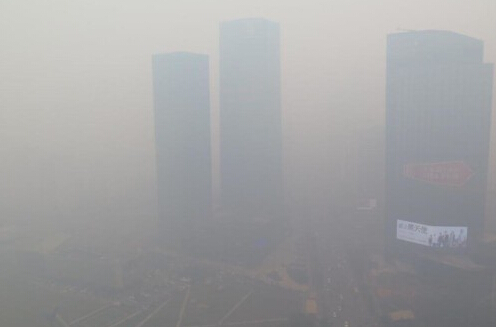 fake
fakeWhy does ‘fake it ’till you make it’ work for some people throughout their careers, yet fail miserably for others?
“在你做到之前,要一直假装你能做到。” 在职场,为什么有的人践行这条谚语成功了,而有些人惨败了呢?
If you’re lacking in confidence at work, you’re often advised to put on a front or that thinking positive is eventually a self-fulfilling prophecy. But does this always pan out? When is it better to admit you just don’t have a clue? We went to question and answer site, Quora, to find out if there are times when ‘fake it ’till you make it’ just won’t cut it.
如果你在工作上没有自信,人们通常会建议你先装出点门面,或者劝慰你说往好的方向想最后结果也会好的。但是,这是金科玉律吗?什么时候最好乖乖承认自己毫无头绪呢?我们也在问答网站(类似中国知乎)上抛出了这个问题,看看什么时候这条谚语不适用。
“I would not recommend it for astronauts, lawyers, heart surgeons, rugby players, nuclear reactor engineers, or special forces soldiers,” wrote Franklin Veaux, but it works well if your goal is to change a personal trait, like your own self-confidence or courage. “In other words, it doesn’t work if you need specialised knowledge, skill, or training,” but Veaux thought it worked well for developing emotional resilience, courage, or motivation.
富兰克林福奥克斯写到:“如果你是宇航员、律师、心脏手术医师、橄榄球运动员、核反应堆工程师或是特种兵,我不建议你用这条谚语。但如果你只是想要改变你的一些个性因素,如提高你的自信和勇气,那么这条谚语将非常好用。换句话说,如果你的职业需要专业知识、技巧、培训,那么你不适合用这条谚语,但如果你只是增强个人的情绪恢复能力、勇气或动力,那么这条谚语将很受用。”
Lawyer, Jennifer Ellis, wrote that it very much depends on what you do for a living. “In my profession, faking it until you make it is a very bad idea。” Ellis explained that many years ago, while working as a secretary, “I had no idea what I was doing。 I didn’t need to fake it, I had no problem admitting I was new at it.[ ...] But, I learned。” She wrote that she has never been someone who believes you should fake it. “I think it is ok to admit when you don’t know something, but it is important to have the confidence to make it clear to others and yourself that you will learn quickly.”
律师珍妮弗爱丽斯写到,这很大程度上取决于你的职业。“如果你和我一样是律师,那这么做不是个好主意。”她解释到,许多年前,她还是一个医学秘书,“我完全不知道我该干什么,但我不需要假装知道,我敢于承认在这方面是新手。我觉得,承认自己不知道什么东西不可耻,重要的是,你要有自信能清楚地告诉别人和自己你会很快学会的。”
By contrast, mechanical engineer, Muralidhara Prabhu, believes the strategy can be very successful for teachers and trainers. He describes himself as a shy introvert who suffered from acute stage fright which meant “I couldn’t even speak in front of a group of four to five.” But, one day he was asked to train some new starters (at his company). He prepared thoroughly, tried rehearsing in front of the mirror, then in front of a few colleagues. “It went well. But when I entered the hall on the day of the training, the memory still sends chills down my spine. There were 60 of them as opposed to the memo that said 25.” Prabhu wrote that he was “shivering and sweating” but gave a big smile to the crowd and tried “to project (fake) confidence.” It worked.
相反地,机械工程师普拉布认为这个策略对老师和训练员来说非常受用。他说自己是一个害羞内向的人,有强烈地舞台恐惧症,“只要面对4到5个人,我就会紧张的说不出话来。”但是有一天,他被安排到训练公司的新人。我充分地准备了,先在镜子前练了,然后再在几个同事前练了。“这些进行的都很好,但是,当训练开始那天,我走进那个大厅,发现台下有60个人,而不是备忘录上写的25个人!现在想起来,我还脊梁骨吹冷风。”普拉布还写到,他“边哆嗦边流冷汗”但是面带笑容并且试着表现的“很有(假的)自信”,最终他成功了。
Feedback from his group was positive and “this one session gave me a lot of confidence and since, I have trained over 1,800 associates with the crowd size from 10 to 120. So in my opinion, faking works till you can make it.”
普拉布说,组里给他的反馈都不错,“这次经历给了我很大的信心,从那次起,我累计训练了1800个新人,每个团大概从10到120个人不等。所以在我看来,在你做到之前,要一直假装你能做到。”
And, there is one field where ‘fake it ’til you make it’ will always remain standard operating procedure, wrote Forrest Murphy - “being a parent.” “When you are a kid, it is easy to assume that the grown-ups have it all figured out. From the other side, it is obvious that we are all just making it up as we go along,” he wrote.
福利斯特墨菲写到,还有一个领域这条谚语屡试不爽一“家长(微博)”。“当你还是个孩子的时候,很容易觉得大人什么都知道。但是从家长方面来说,很明显,我们都是在‘装”着过日子。”
Quora respondents are required to use their true names under the site’s Real Names policy. To help ensure legitimacy and quality, Quora asks some individuals, such as doctors and lawyers, to confirm their expertise.
问答网站要求回复者实名验证。为了确保回复的合法性和质量,问答网站要求一些个人,像医生、律师们证实了自己的身份。
Quora respondents are required to use their true names under the site’s Real Names policy. To help ensure legitimacy and quality, Quora asks some individuals, such as doctors and lawyers, to confirm their expertise.





































































































